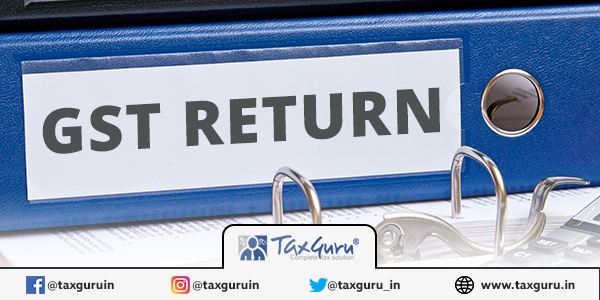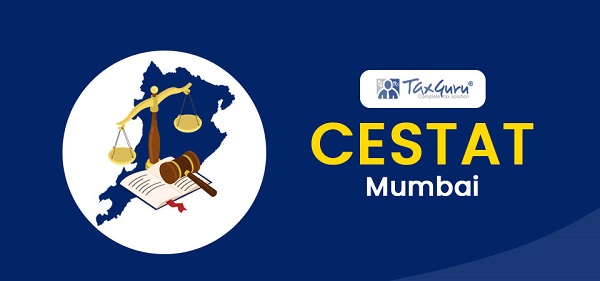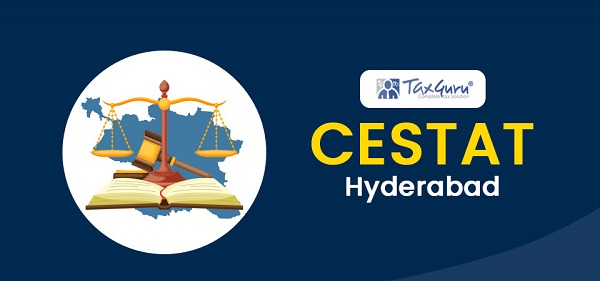Goldman Sachs Group Inc.’s November 2006 announcement of Rajat Kumar Gupta’s election to its board brimmed with the India native’s achievements: worldwide managing director of McKinsey & Co.; special adviser to the Secretary- General of the United Nations on management reform, co-chairman of the American India Foundation charity, whose honorary chair is former President Bill Clinton.
Goldman Sachs Chairman Lloyd Blankfein said at the time: “Our shareholders will be fortunate to have his strategic and operational expertise and judgment.” Now, with his term ending next month, Gupta is leaving the board.
On March 19, without explanation, the firm announced his decision, thanking him for his service. Three days later, prosecutors said they were examining trades in Goldman Sachs shares by Raj Rajaratnam, the central figure in the largest U.S. insider-trading case ever and a onetime Gupta business partner.
Gupta, 61, is being examined by the U.S. Securities and Exchange Commission, which sued Rajaratnam, according to a person familiar with the Galleon investigation who asked not to be identified because the matter is ongoing and confidential.
“Rajat Gupta’s record of ethical conduct and integrity in his professional and personal life is beyond reproach,” his lawyer, Gary Naftalis, of Kramer, Levin, Naftalis & Frankel LLP, said in an interview. “He has made significant philanthropic and civic contributions in the United States, India, and around the world. He violated no laws or rules and did nothing wrong.”
Goldman Comment
Goldman spokesman Ed Canaday declined to comment on the departure of Gupta, who earned $450,000 as a firm director last year, according to a regulatory filing.
Gupta, who has served on the Goldman board’s audit, compensation and corporate-governance committees, is a native of Kolkata, a Communist-run city in Eastern India. From lower middle-class beginnings, he managed an elite education and career: Delhi’s Modern School in the 1960s, a degree from the Indian Institute of Technology in 1971, Harvard Business School in 1973, and a job at McKinsey right after graduation.
He lost both his parents before he turned 18, according to a 1993 interview he gave to Indian business magazine Business Today when he was appointed head of McKinsey. At Harvard, he was “reticent” to speak up in class, according to the interview. Now he speaks regularly at conferences in India and overseas on subjects including the Indian economy, investing, public health and education.
Gupta, who speaks English, Hindi and Bengali, has tried for years to keep a regular bridge game going as a hobby, but his global travel schedule has made that difficult, said one of his card partners who asked not to be identified.
Westport Home
He is married with four daughters and owns a waterfront home in Westport, Connecticut, valued at $9 million.
After serving as McKinsey’s worldwide chief from 1994 to 2003, then as a senior worldwide partner until 2007, Gupta withdrew from the consulting firm and joined the boards of American Airlines parent AMR Corp., Procter & Gamble Co., Harman International Industries Inc. Genpact Ltd., the business outsourcing company, and Russia’s OAO Sberbank, earning at least $2.8 million in 2009 in compensation, regulatory filings show.
Some of these companies are sticking with him notwithstanding the publicity about his ties to Rajaratnam.
“We have every confidence in Rajat’s integrity,” Procter & Gamble spokesman Paul Fox said April 16. On the same day, Sberbank Chief Executive Officer German Gref said Gupta would remain an independent director on the Moscow-based bank’s board.
So far, 11 people have pleaded guilty in the insider- trading probe. Rajaratnam, founder of hedge-fund firm Galleon Group LLC, denies any wrongdoing. He is scheduled to be tried in October on criminal charges.
Raj’s Arrest
Rajaratnam was arrested Oct. 16. Many of the allegations against him involve trading shares of technology companies, such as Advanced Micro Devices Inc. In a March 22 letter to Rajaratnam’s lawyers, made public April 9, prosecutors said they also had an interest in his trading in Goldman stock in 2008.
In a filing April 16, they said they were looking at trades made before a September 2008 disclosure that Berkshire Hathaway Inc. Chairman Warren Buffett would pay $5 billion to acquire Goldman preferred stock paying 10 percent interest.
Gupta joined with Rajaratnam and two other partners, including former Goldman Sachs Asia chairman Mark Schwartz, to form Taj Capital Partners in 2006. According to an October 2006 marketing document, the fund aimed to put $2 billion primarily into South Asian investments, half of it through a hedge fund run by Rajaratnam.
Short-Lived
This involvement with the former Galleon Group chairman was short-lived. Rajaratnam withdrew from the deal when the other principals of the firm, now called New Silk Route Partners, decided against being a hedge fund.
Gupta and Rajaratnam and their wives Anita and Asha attended galas staged by the American India Foundation, on whose Council of Trustees both served. In May 2009, they were among the “creme de la creme crowd” that dined on Tandoori lamb chops, raising $1.5 million for charity in an auction while honoring KKR & Co. co-founder Henry Kravis, according to Indian-American society Web site Lassi With Lavina.
Last year, Gupta advised Kravis and KKR co-founder George Roberts on how to manage the firm’s expansion. It’s an assignment Gupta handled himself at McKinsey, which grew from 500 employees to 9,000 in the 35 years he spent at the consulting firm.
On March 17, Gupta’s firm, New Silk Route, joined KKR’s India unit and Standard Chartered Plc’s private-equity branch in investing $200 million in an India-based coffee chain called Café Coffee Day.
White House Dinner
Gupta and his wife were among dignitaries who attended a White House state dinner in November to honor Indian Prime Minister Manmohan Singh, White House records show. White House spokesman Ben Labolt declined to comment.
Gupta, who has been a U.S. citizen since 1984, had a relationship with another Galleon case defendant, Anil Kumar, a friend and associate from his days at McKinsey. Kumar pleaded guilty Jan. 8 to leaking inside information to Rajaratnam over five years in exchange for $1.75 million. Kumar is now cooperating with federal prosecutors.
During Gupta’s time at McKinsey, Kumar headed an operation to outsource high-level McKinsey research to India. Gupta has spent much of his time in India, partly working on deals, since he stepped down at McKinsey in 2007.
Gupta and Kumar have both served on the board of the Hyderabad-based Indian School of Business, opened in 2001 because of an effort by Gupta and other Indian business leaders to create a quality higher-education institution in the country.
School Ties
Gupta had already served on advisory boards of the Harvard Business School, Massachusetts Institute of Technology’s Sloan School of Management, the Wharton School of the University of Pennsylvania and Northwestern University’s Kellogg School of Management. Kellogg and Wharton are now academic partners at the Indian Business School, which the Financial Times ranked in the top 20 business schools of the world in 2009.
“Rajat and Anil played a very good, strong pivotal role in the Indian School of Business,” said Kiran Mazumdar-Shaw, the Chairman of Biocon Ltd. and one of India’s most successful female entrepreneurs.
Shaw, on the executive board of the Indian School of Business, described Gupta as “very passionate” about the school. “It’s very unfortunate that he is going through this sort scrutiny and allegations,” she said.
India Scrutiny
Among his India deals, he and other investors, including Ramesh Vangal, an ex-president for Asia Pacific at PepsiCo Inc.’s international foods unit, bought shares in a small, privately held bank in Tuticorin, India. Tamilnad Mercantile Bank Ltd. serves fewer than 3 million customers and posted a 684 million rupee ($15.3 million) profit in the 2009 fiscal year, according to its Web site. Its shares paid a 1,000 percent dividend in 2007 and 2008, and 6,000 percent in 2009, according to Chief Executive Officer G. Nagamal Reddy.
Gupta and the other investors acquired a 23 percent stake in the bank by buying shares from private parties, according to Reddy. A shareholder complaint to the Reserve Bank of India, which controls ownership above 5 percent in banks, resulted in an RBI opinion that Gupta, Vangal and the others “were acting in concert,” Reddy said.
“The Reserve Bank found that in light of the evidence presented to them, the investors were part of a group,” he said. The RBI recommended further investigation, according to Reddy.
Reserve Bank of India spokeswoman Alpana Killawala didn’t return a call seeking comment nor did Vangal, who was also e- mailed. Gupta declined to comment at the time.
Airwave Auction
Augere Ltd., another company in which Gupta’s fund owns a stake, will compete this month in an airwave auction in India.
The company, registered in Mauritius, has a net worth of $79.8 million, according to ownership documents filed with India’s Department of Telecommunications.
Bids for the airwave auction start at $380 million. Competition from companies such as Vodafone Group Plc., Bharti Airtel Ltd. and Qualcomm Inc. may push the winning price, payable immediately, to more than $1 billion, according to Macquarie Group Ltd. regional head of telecoms research Shubham Majumder.























Will someone kindly clarify if this Rajarathnam is the same person who became one of the biggest owners of companies in India, mainly in South India, in the early nineties and, even though declared an absconding offender by courts, was being harboured in a hugely protected “court” in Chennai until recently?